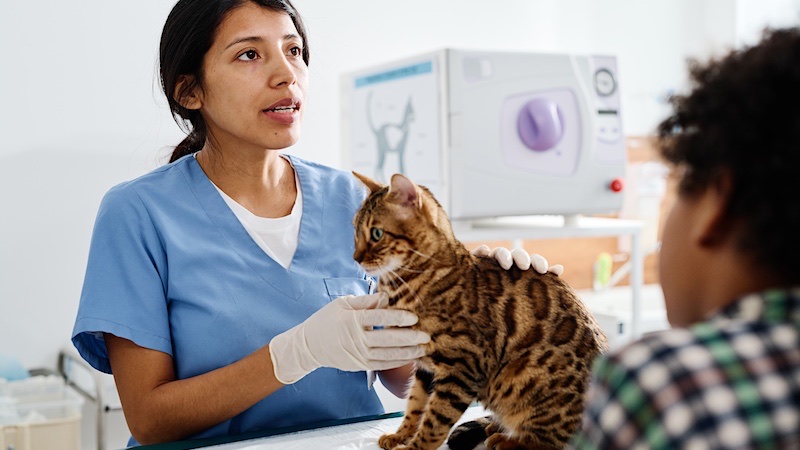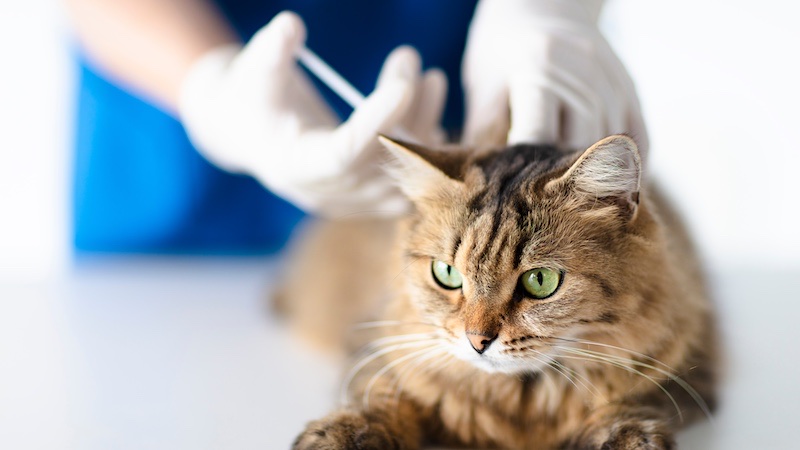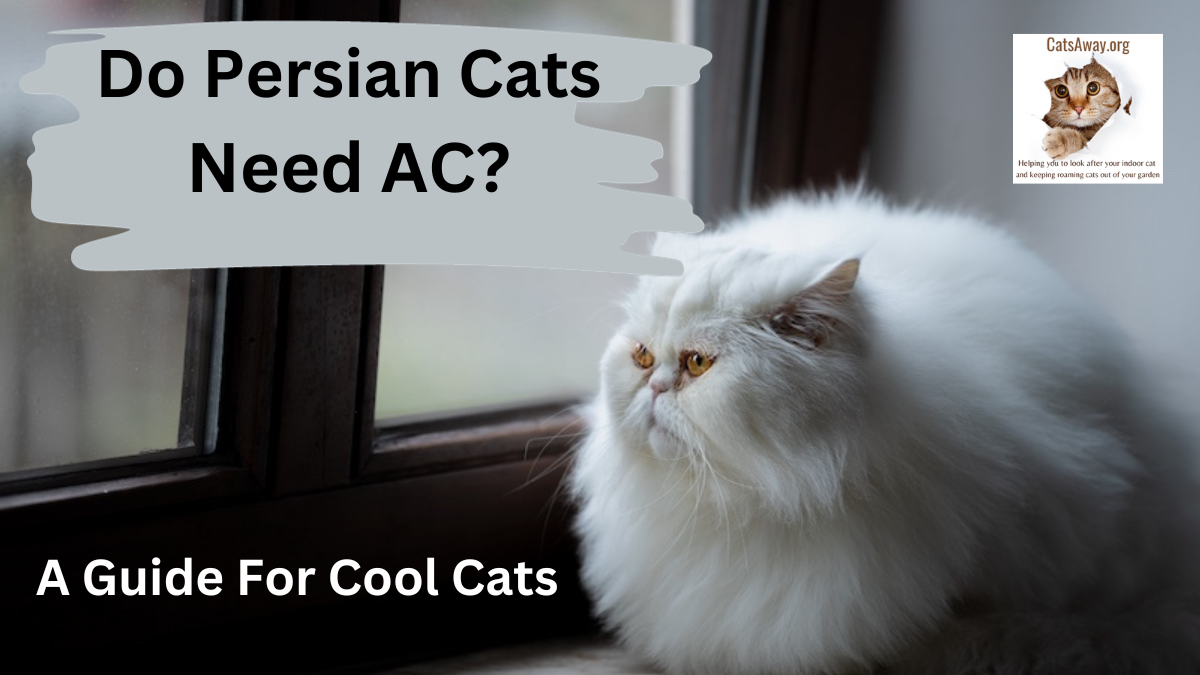Do indoor cats need shots or are they safe because they don’t mix with stray or roaming cats? It’s a question that many cat owners ask themselves. The truth is, even if your beloved feline friend never leaves the house and lives an exclusively indoors lifestyle, they still require vaccinations to help keep them healthy and protected from potential diseases.
Here we’ll explore why vaccines are important for indoor cats, common illnesses associated with them, ways to prevent disease in these animals as well as the benefits of vaccinating. So let’s dive into it
Vaccines for Indoor Cat

Vaccines are an important part of keeping your indoor cat healthy and protected from contagious illnesses and diseases. Vaccinating your cat is one of the best ways to ensure their long-term health and well-being.
What Vaccines are Necessary?
The most common vaccines for cats include those that protect against feline distemper, calicivirus, rhinotracheitis, panleukopenia (feline parvovirus), rabies, chlamydia psittaci, feline leukemia virus (FeLV) and feline immunodeficiency virus (FIV).
Depending on where you live, other vaccines may be recommended by your veterinarian. It’s important to discuss with them which vaccinations are necessary for your particular area or situation.
Be sure to tell your vet if your cat exclusively lives indoors with you. Your vet may well ask further questions such is he ever left alone outside in a catio, has he ever run away, or do neighbourhood cats ever visit your garden?
How Often Should Vaccines be Administered?
Most vaccines should be administered every one to three years in adult cats; however some may need more frequent boosters depending on age or lifestyle factors such as exposure to other animals or travel outside the home environment. Your veterinarian will advise you on the appropriate schedule for vaccinating your cat based on their individual needs.
Are There Any Risks Associated with Vaccinating an Indoor Cat?
Although there is a small risk associated with any medical procedure including vaccination, it is generally considered safe for cats who have no underlying health issues or allergies to certain medications used in vaccinations.
If you have any concerns about potential risks related to vaccinating your indoor cat, it is best to speak with your veterinarian before proceeding with any treatments so they can assess whether it is safe for them or not.
Vaccines are an important part of keeping your pet healthy. By understanding which vaccines are necessary, how often they should be administered, and the associated risks, you can ensure that your cat stays safe and healthy. Now let’s look at some of the common diseases of cats.
Common Diseases of Cats
Feline Leukemia Virus (FeLV) is a contagious virus that can be spread through contact with saliva, urine, or feces of an infected cat. It can cause serious health problems including anemia, immune system suppression, and cancer. Symptoms may include loss of appetite, fever, lethargy, pale gums and eyes due to anemia.
Treatment for FeLV includes antibiotics and supportive care such as fluids and nutrition support. Vaccination is the best way to prevent infection from FeLV in cats that are at risk of exposure.
Feline viral rhinotracheitis calicivirus is another common disease affecting cats which causes upper respiratory infections similar to those seen in humans. Symptoms may include sneezing, coughing, runny nose or eyes and difficulty breathing.
Treatment usually involves antibiotics to reduce symptoms but there is no cure for calicivirus itself so prevention through vaccination is important if your cat has been exposed to other cats who could carry the virus.
Rabies is a viral disease that affects all mammals including cats; it’s transmitted by bites from rabid animals such as bats or raccoons but can also be passed on indirectly through contact with saliva or blood of infected animals even if they don’t show any signs of rabies themselves yet.
Symptoms may include aggression towards people or other animals as well as seizures and paralysis; treatment requires immediate medical attention because rabies cannot be cured once contracted by a human or animal host, although it can be prevented with a rabies vaccine prior to exposure if possible.
By understanding the common diseases of cats, such as FeLV, calicivirus and rabies, owners can better protect their pets by taking preventive measures to keep them healthy. Next we’ll look at how proper nutrition, exercise and regular vet visits can help prevent disease in indoor cats.
Prevention of Disease in Indoor Cats
Proper Nutrition and Exercise: Proper nutrition is essential for the health of your indoor cat. Feeding them a balanced diet that contains all the necessary vitamins, minerals, proteins, carbohydrates and fats will help keep their immune system strong and reduce their risk of disease.
Additionally, providing regular exercise opportunities such as playing with toys or running around in a Catio can help keep your cat active and healthy.
Regular veterinary check-ups are important to ensure that your cat stays healthy by catching any potential illnesses early on. In addition to this, keeping the home environment clean by regularly vacuuming carpets or furniture can help reduce allergens which may trigger respiratory issues in cats.
Cats are very sensitive animals, so it is important to avoid situations that could be stressful for them such as loud noises or too many visitors at once. To provide mental stimulation for an indoor cat, you should offer plenty of interactive toys like scratching posts or puzzle feeders which encourage natural behaviors while also helping prevent boredom from setting in.
Benefits of Vaccinating an Indoor Cat

Vaccinating an indoor cat is one of the most important things you can do to ensure your pet’s health and wellbeing. Vaccines protect cats from contagious illnesses and diseases, increase their lifespan and quality of life, and provide peace of mind knowing that they are protected.
Protection from Contagious Illnesses and Diseases:
Vaccines help protect cats against a variety of contagious illnesses such as feline leukemia virus (FeLV), calicivirus, rabies, panleukopenia virus (FPV) and more. These vaccines are especially important for indoor cats who may not have access to regular veterinary care or outdoor exposure which could put them at risk for these diseases.
Increased Lifespan and Quality of Life for Your Pet:
Regular vaccinations help keep your cat healthy by boosting their immune system which in turn helps them live longer lives with fewer medical issues. This also ensures that your cat will be able to enjoy a higher quality of life without having to worry about preventable illnesses or diseases taking away years off their lives.
Peace of Mind Knowing Your Cat is Protected:
Vaccinating your cat provides peace of mind knowing that they are safe from any potential threats posed by other animals or people who may come into contact with them while inside the home environment.
Overall, vaccinating an indoor cat is essential for keeping them healthy both physically and mentally throughout their lifetime. It is something every responsible pet owner should consider doing on a regular basis.
FAQs in Relation to Do Indoor Cats Need Shots?
What happens if I don’t vaccinate my indoor cat?
Not vaccinating your indoor cat isn’t worth the risk and could lead to serious health risks.
Unvaccinated cats are more susceptible to diseases such as feline distemper, feline leukemia, and rabies. These illnesses can cause severe symptoms including fever, vomiting, diarrhea, seizures and even death in some cases.
Vaccinations help protect cats from these potentially fatal illnesses by stimulating the body’s immune system to produce antibodies that fight off infection. Regular vaccinations are an important part of keeping your cat healthy and safe from disease.
How often does my indoor cat need vaccinations?
Indoor and outdoor cats should be vaccinated annually. Vaccinations help protect cats from common diseases and viruses, such as feline distemper, rabies, and feline leukemia virus.
In addition to vaccinations, indoor cats should also receive regular health check-ups with a veterinarian to ensure they remain healthy and free of parasites or other illnesses. A yearly visit is recommended for all cats regardless of age or lifestyle in order to keep them safe from preventable diseases.
Conclusion
Cats can become resistant to life-threatening diseases such as rabies if given vaccines. If your cat lives entirely indoors, it might be tempting to see how much money you might save by skipping some of the cat vaccines.
Vaccines are important for protecting your cat from diseases like feline leukemia virus (FeLV), calicivirus, and rabies. Keeping your cat indoors will definitely reduce the risk of them catching these illnesses but they still require annual vaccines to remain healthy and safe.
It’s also important to protect your garden from neighborhood outdoor cats to ensure your cat remains healthy, especially if you have an outdoor cat enclosure. Have a look at our cat deterrents here.





